Touching down at the bustling Beijing Capital International Airport, you cannot miss that China has again opened to the world after COVID-19 shut down, nor will you miss the pervasive positive spirit and a sense of endless possibilities in the atmosphere.
If you have any doubt, a 30-minute drive from the airport to Changping District, North of Beijing, tells the story of a country’s metamorphosis, ancient roots, and what pragmatic leadership can do. I am a guest of the Chinese government from the 20th of August till the 2nd of September. It has proven to be a unique opportunity to understand Chinese leadership thinking and the nation’s development trajectory. It has allowed me to do contrastive leadership and political models between China and Nigeria to see if there are vital lessons to be learnt and applied in Nigeria to accelerate our socioeconomic development.
Although different in many ways, China and Nigeria represent giants in their respective continents (Asia and Africa}. They symbolise the hopes and aspirations of their people in a highly competitive and polarised world dominated for over 500 years by the West.
The story of how China got it right and has become the quintessential alternative economic and political power, whilst Nigeria has, at best, remained stagnant over the past decades, is fascinating. No doubt, a multiplicity of factors contributed to this dichotomous and contrasting outcome, which will merit elaborate analysis at an appropriate forum.
We must delve into their past to understand China’s and Nigeria’s present. First, let us look at China. Chinese civilisation dates to the first Chinese dynasty, Xia, founded in 2070 BC. From the period of this dynasty, through the Middle Han dynasty in the 3rd century to the North Song dynasty of the 10th to 13th century, ancient China was credited with four great inventions: gunpowder, paper making, compass, and moveable-type printing.
Ancient China also grew in economic power, constituting 26% of the world GDP in 206 BC, 58% in the 7-9th century, and 60% of the global GDP in the 10-13th century. Like all ancient civilisations, ancient China declined in power and influence and was invaded by Western forces and Japan in the 18th century, which influenced the Chinese psyche for generations.
This history of past economic development, though not a predictor of future economic status, mirrors hope, possibilities and what could be achieved with visionary leadership and excellent governance structures for China. Although almost on its knees by the middle of the 20th century, China came up with a way of working out of the dungeons of lack of productivity and economic quagmire.
The founding of the People’s Republic of China in 1949, led by Mao Zedong, opened a new chapter in Chinese history. From the ashes of the Korean War, the PR of China effectively began economic reconstruction with the first five-year development plan as the foundation. Within 1953-1957, the visionary Chinese leaders established a solid foundation for its industrial renaissance.
The scheme delivered over 10,000 large-scale industrial projects covering the construction of 250,000 km of railways, aviation, power generation, automobile production, precision equipment, steel pipes, and radio.
1978 marked a turning point in the development of China. Deng Xiaoping opened China to the outside world, introduced foreign direct investment, and legalised private investment. The private sector-led economy led to the establishment of a socialist market economy system and the development of capital markets and stock exchanges.
The government privatised almost all small and medium-sized state-owned enterprises and lifted price control over most products. But this pragmatic approach is only the beginning of a phenomenal development. This unprecedented and rapid economic development reflects the quality of Chinese practical and visionary leadership.
The leaders of China centred the emancipation of China on economic growth. They pursued a vision of a new China using the instrumentality of economic growth as a strategy to power a great nation.
A study of three of China’s most consequential leaders revealed a remarkable pattern contributing to their phenomenal prosperity. The three leaders are Mao Zedong, popularly called Chairman Mao, who is the architect of a unified China and the People’s Republic of China.
The second is Deng Xiaoping, the champion of reform, which opened China to the world in 1978. Lastly, Xi Jinping is the father of modernisation and the current leader of China. He is leading the digital China: digital industrialisation, industrial digitisation, digital governance, and data ‘valurisation’.
All three leaders share five common traits: their subscription to the power of ideas, strategic thinking, pragmatism, discipline, and resilience in sticking to a clear vision. Mao Zedong’s Great Leap Forward and Deng Xiaoping’s economic reforms transformed China’s economy, and subsequent leaders have prioritised economic growth and development to maintain social stability. Xi Jinping also follows a similar path of economic prosperity as a pathway to social peace.
China is unarguably the world’s manufacturing hub. It is a product of vision, strong leadership, discipline, meticulous planning, hard work, and resilience. Powered by visionary leadership, China is focused on modernisation and digital civilisation today.
They achieved zero poverty society in 2021, number 2 in research and development globally in the past five years and above USD 3 trillion in reserves since 2011. The power of visionary leadership does not submit to excuses.
In contrast, historically, Nigeria was a product of colonisation and cannot lay serious claim to historic economic progress of any significance in Africa. It is a fact that Nigeria suffered the double whammy of slavery and colonialism and was just a property for subjugation by Britain. Its fight in the pre-colonial period was a fight for survival and statehood. Having been conquered culturally, religiously, and economically, Nigeria was gasping for air to breathe when Britain gave independence.
The independence, by all ramifications, was just a paper victory, and the fight for freedom and prosperity started in 1960 when our leaders were clamouring for the dignity of the black man.
Post-1960s, much remained the same concerning leadership outcomes. Our leadership quality has even worsened and has since plummeted. Except for a handful, each subsequent leader plunges Nigeria more into the abyss. And Nigeria is in dire need of visionary leaders that will transform it like the Chinese leaders did to China.
Who are our innovative and visionary leaders in the mould of Chairman Mao, Deng Xiaoping, and Xi Jinping? Who among our leaders has created a vision of economic growth based on productivity and put in place the structures and systems that will make it work? Unlike most Nigerian leaders, most Chinese leaders are long-term thinkers. Developing strategic thinking involves thinking about more significant macro issues, unlike the micro focus many tend to take in Nigeria.
Strategic thinking means seeing how the world, the country and the broader economy will evolve and function. It also includes thinking long-term in contrast to near-term, our trademark in Nigeria.
Notably, in 1978, when China laid the foundations of economic emancipation, Nigeria’s per capita income was better than the Chinese. China’s per capita income was around $155 to $175. Nigeria’s per capita income was around $350 to $400. Nigeria’s per capita income was double that of China. In 2022, China’s per capita was $12,814, while Nigeria’s was $2184.
This is over 10,000 USD more than Nigeria’s. It beggars belief! Since 1978, China’s per capita has increased by over 50 times by 2022, whilst Nigeria’s has increased marginally by five times.
We don’t need to look further to identify the cause of this. What is our shared or common vision? China, from 1978, focused on Better Life and Prosperity for all. Leaders and strategy have changed, but every leader has yet to abandon this vision. We had Development plans at various times: Operation Feed the Nation, Green Revolution, Vision 2010, Vision 2035, and Vision 2050. What happened to all our long- and medium-term plans? Why did they fail, and did the Chinese succeed?
China’s economic growth is a multifaceted force reshaping the world order in complex ways. It challenges existing norms and global power structures, creates new opportunities in business, supply chain, technology and innovation. China’s growing influence has forced countries, especially in Africa, to navigate a changing geopolitical and resource control landscape.
How these implications unfold will depend on the strategies and policies adopted by China and other countries in response to this evolving global dynamic. China’s hard and soft power is evident, and the world has taken notice.
Besides, China is vying for global economic pre-eminence with the US but has no economic comparative advantage yet. However, the leadership factor puts it at a strategic advantage because of its unique one-party authoritarian model that aggressively pushes for growth and defies the hitherto philosophy that economic advancement is impossible outside the Western democratic and capitalist model.
Nigeria needs more focused economic planning, a clear and achievable vision and goals, and a clear understanding of its position in the emerging New World Order. In this Order, capital and economic development is premium.
The core lesson from the China experiment is that pragmatic and visionary leadership makes a tremendous difference in economic growth. Nigeria needs such now more than ever. Our new president has a date with history to map a course that makes him such a leader. History beckons.
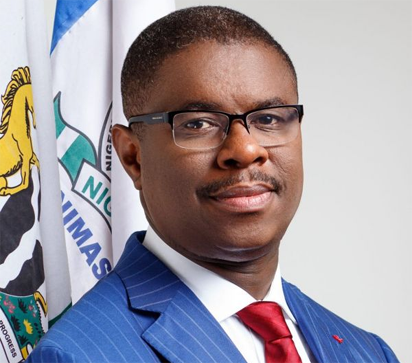


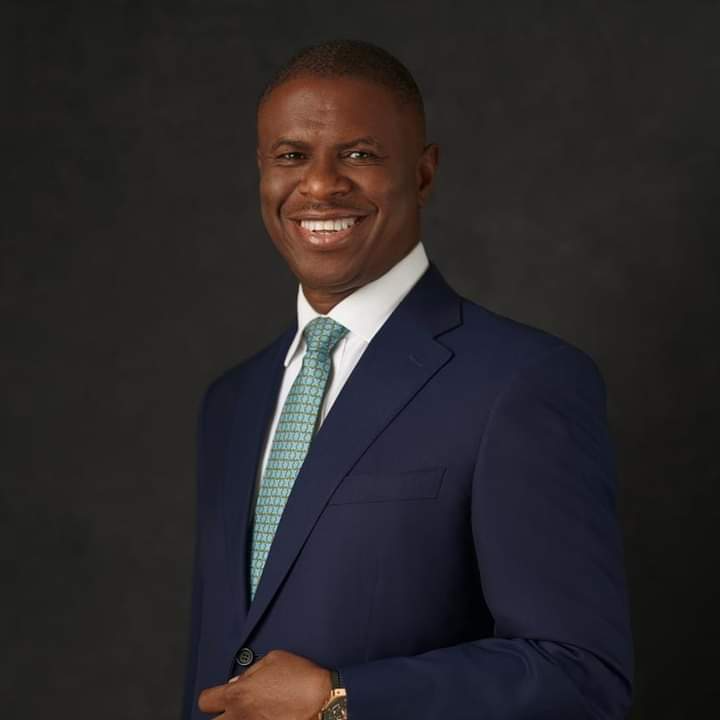
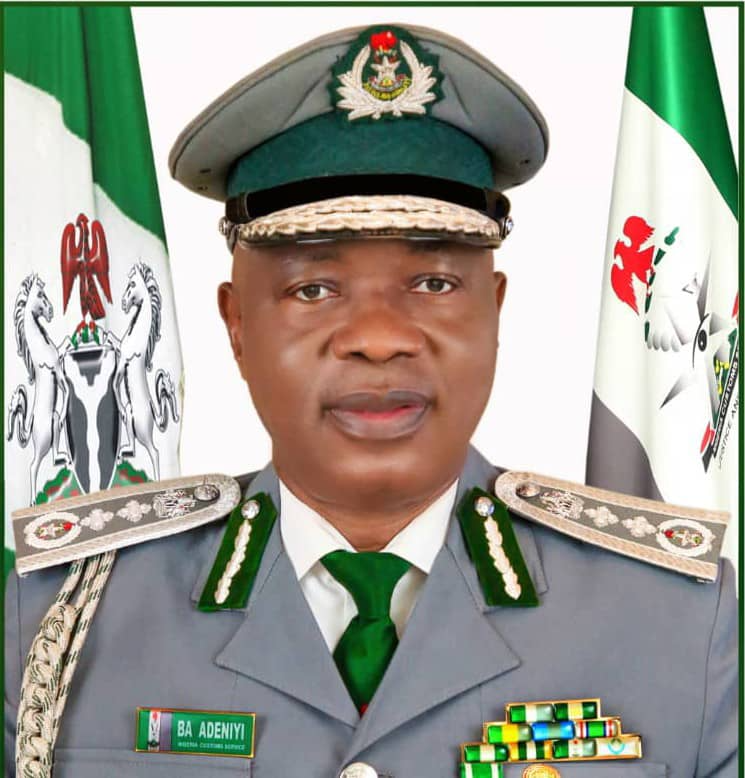
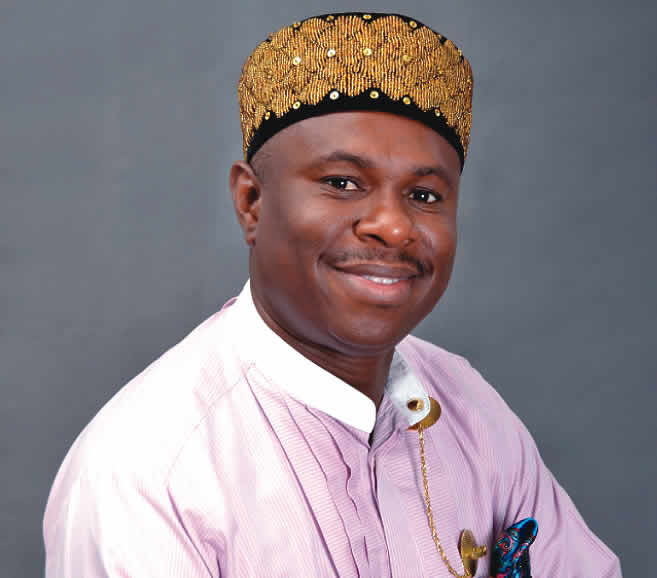
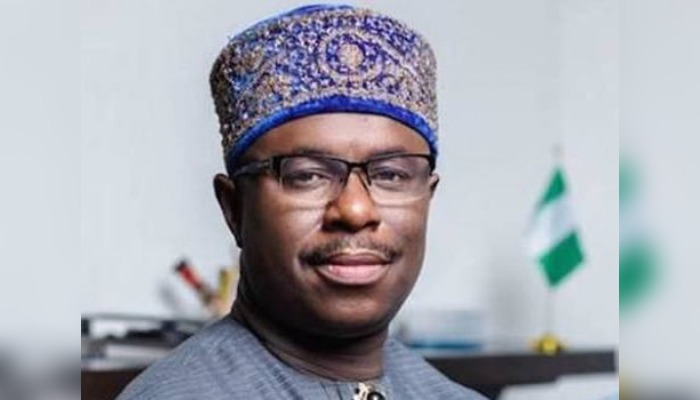
 Neither the Executive nor the legislature or the security agencies seem to have mustered the will to tackle it. Only a few cosmetic exercises have been done. I acknowledge the little gains made by these efforts, but they have not been enough to reduce, if not eradicate, the menace of the proliferation of small and light weapons in Nigeria.
Neither the Executive nor the legislature or the security agencies seem to have mustered the will to tackle it. Only a few cosmetic exercises have been done. I acknowledge the little gains made by these efforts, but they have not been enough to reduce, if not eradicate, the menace of the proliferation of small and light weapons in Nigeria.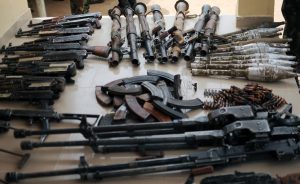 The situation where these rogue elements have better and more sophisticated weapons than the security agents leave much to be desired. We expose our security men to harm’s way in their seemingly onerous task of protecting us.
The situation where these rogue elements have better and more sophisticated weapons than the security agents leave much to be desired. We expose our security men to harm’s way in their seemingly onerous task of protecting us.